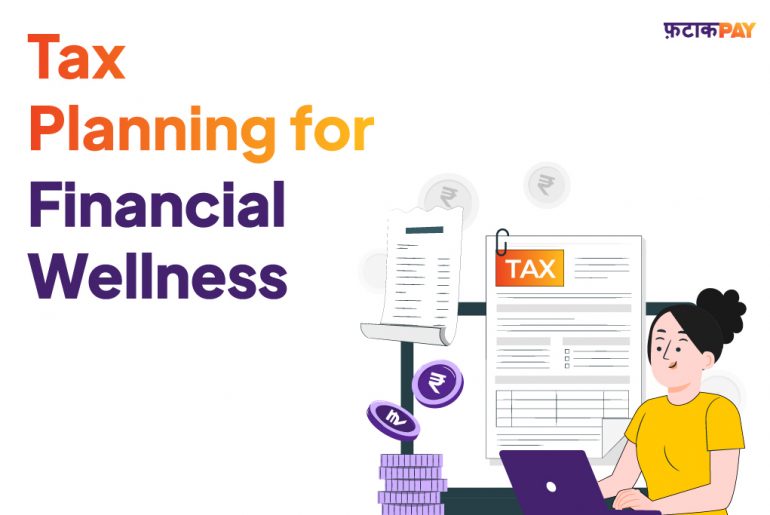Knowing you have enough money to live freely even after retirement is fantastic. With perfect Tax planning, you can achieve ideal financial wellness. Tax preparation and financial health are essential to ensure your future financial security.
It is inextricably intertwined since adequate tax preparation can significantly affect economic well-being. This blog post will examine the crucial elements of financial wellness and their connections to intelligent tax planning.
We will share with you the knowledge and abilities necessary to take charge of your financial situation and ensure a better financial future, including setting financial objectives, controlling debt, and reducing taxes.
Assessing Your Financial Wellness:
Firstly, you should assess your financial situation, considering your earnings, expenditures, assets, and debts. You can identify the areas that demand improvement by evaluating your financial situation.
You can make the necessary changes to improve your financial security and stability with the correct information and research. Regularly checking your finances will help you build a more secure future and reach your financial objectives.
Tax Saving Strategies for Financial Wellness:
It is a crucial part of your wise financial planning, so you must understand what it is and how to handle it. Knowing about and utilizing tax-saving strategies may maximize income, reduce tax obligations, and increase wealth. The following vital tactics are things to think about:
1.Tax Deductions
Can you reduce your total taxable income? To lower your taxable income, you can use tax deductions by claiming expenses like mortgage interest, charitable donations, and medical and educational fees. For business purposes, you can also use Tax deductions for things like employee benefits, asset depreciation, and business-related expenses.
Use Different tax deduction strategies in each country according to local laws and regulations endorsed by tax authorities. Suppose you need to take advantage of the deductions. In that case, you must fulfill specific eligibility requirements and keep accurate records and supporting paperwork to file your tax returns.
We suggest you see a tax professional to determine your eligible deductions and ensure you claim them accurately.
2. Tax-Advantaged Accounts:
There are many tax-advantaged accounts available in India that support investments and savings while offering enticing tax advantages. The Employee Provident Fund (EPF) and Public Provident Fund (PPF) provide tax deductions and tax-free interest.
While offering tax advantages through Tax-Saving Fixed Deposits and Equity-Linked Savings Schemes (ELSS), the National Pension System (NPS) provides tax benefits on contributions.
The Sukanya Samriddhi Yojana offers tax incentives and supports the financial stability of girl children. These accounts help minimize tax burdens, foster long-term asset growth, and encourage financial discipline. It would be best to keep up with changing tax laws; getting customized counsel from financial professionals is advisable.
3. Capital Gains Management
You require careful management of capital gains for Financial planning. It concerns how you handle the money you get from selling assets like mutual funds, stocks, and real estate.
Both long-term and short-term have different tax regulations. It would help if you used tax-saving choices, held purchases until the opportune time to get lesser taxes, and took advantage of Income Tax Act exemptions as sensible management techniques for capital gains.
To properly handle capital gains, keeping up with tax regulations and seeking professional counsel is critical; this enables you to maximize your earnings while minimizing your tax obligations.
4. Tax-Efficient Investing
There is a strategic approach, ‘Tax-efficient investing,’ that you can use to optimize investment returns while minimizing tax liability. Selecting financial instruments and investment avenues that provide advantageous tax treatment is part of this.
Generally, you want to concentrate on tax-saving mutual funds since they offer potential returns and Section 80C of the Income Tax Act tax deductions. Favorable capital gains tax rates are another advantage of long-term stock investing.
Tax-efficient investing is crucial to wise financial planning in India since it allows you to maximize your after-tax profits by matching your investment decisions with tax laws.
5. Debt Management – key to Financial wellness
Eliminating Your Debt will lighten your significant financial load. Debts come in various forms, including credit card debt, loans, and mortgages. The total amount of debt you can decrease by giving priority to high-instant personal loans and making a budget that allows money for on-time payments.
Consider combining several debts into one (debt consolidation) or negotiating better terms with creditors to pay off debt. Remain organized by monitoring deadlines and routinely assessing your expenditures and financial objectives.
For a balanced and long-term strategy for managing various forms of debt, make sure your repayment plan is clear, consult an expert if needed, and follow it religiously.
6. Emergency Funds
If you have emergency funds, no financial emergency, such as paying for medical expenses, education expenses, car repair, etc., can become a hurdle in your Financial wellness.
There are different ways to create emergency funds. Our previous blog post, “Financial Planning during Times of Economic Uncertainty, ” has covered this subject in great detail.”
If you are short on money during any financial emergency, there is a fantastic solution for it – FatakPay; it provides quick credit during times of trouble. It guarantees a transparent and secure transaction experience – without interest fees or hidden charges.
Conclusion:
Keeping your taxes under control will help you ensure a worry-free retirement with sufficient funds to live comfortably. It’s like creating a sturdy financial shield. Educating yourself about finances and taxes is crucial, and it’s a good idea to seek professional tax guidance early on to avoid making mistakes.
After you get the hang of it, you can confidently claim the appropriate tax deductions and position yourself for long-term financial security.







